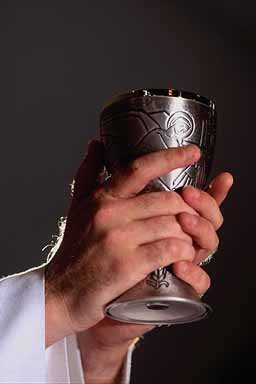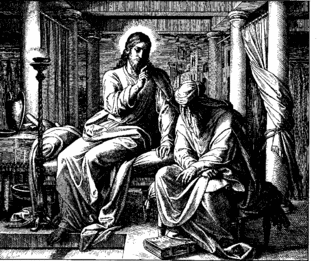There is a program on television nowadays, watched by more than a few people, in which a particular record company executive is wont to make comments that come across as very unkind.
When the audience boos him, he often raises his hands and protests that he is simply trying to “keep it real.”
Honest, objective, rational criticism has its place, of course, but unkindness that is deliberate and unnecessary does not.
We do not need to keep unkindness real.
In fact, today’s readings tell us exactly the opposite.
Today, the end of the Octave of Easter (a full week of celebrating the resurrection of our Lord and Savior Jesus Christ), was called Divine Mercy Sunday by the great Pope John Paul II, and each of today’s
readings in different ways tell us to “keep real” the divine mercy we celebrate.
Interestingly, depending on the translation used, the only time the word “mercy” is heard in today’s readings (and sometimes not even there) is in the repeated response of the magnificent litany that opens Psalm 118:
His mercy endures forever.
The word translated here as “mercy” is one of the loveliest words of ancient Hebrew:
hesed – often translated more fully as “lovingkindness.”
THAT is what we need to keep real – in what we say and in what we do: the mercy, the
hesed, the lovingkindness of God – manifested most perfectly and powerfully in the death and resurrection of our Lord and Savior Jesus Christ.
Indeed, in a special sense, we make the risen Christ present when we make mercy real in our lives: mercy that can be felt and touched – as real as the sacred wounds of the risen Christ in today’s Gospel (
John 20:19-31).
We see this at the very beginning of the Church, as we hear in today’s first reading (
Acts 4:32-35), in the days and months following the resurrection, where everyone cares for the needs of everyone else.
The second reading (
1 John 5:1-6) also tells us how to keep mercy real.
In this way we know that we love the children of God
when we love God and obey his commandments.
Finally, we keep the mercy of God real by our forgiveness. It is no accident that the first thing our risen Lord says after saying
Shalom in today’s Gospel is to send the Disciples forth for the ministry of forgiveness.
As we continue with this Easter season, as we live out the meaning of Christ’s resurrection in our lives, we need to do everything we can to make our loving and risen Lord present in what we do and what we say.
We need to keep mercy real.
 A Penitent Blogger
A Penitent Blogger



 Just last year, on August 8, 2005, "ten young women made their perpetual profession of the simple vows of poverty, chastity, and obedience as Dominican Sisters of Saint Cecilia Congregation in Nashville, Tennessee."
Just last year, on August 8, 2005, "ten young women made their perpetual profession of the simple vows of poverty, chastity, and obedience as Dominican Sisters of Saint Cecilia Congregation in Nashville, Tennessee."





